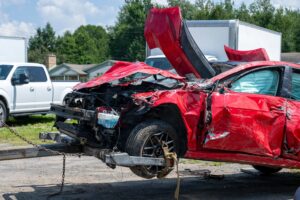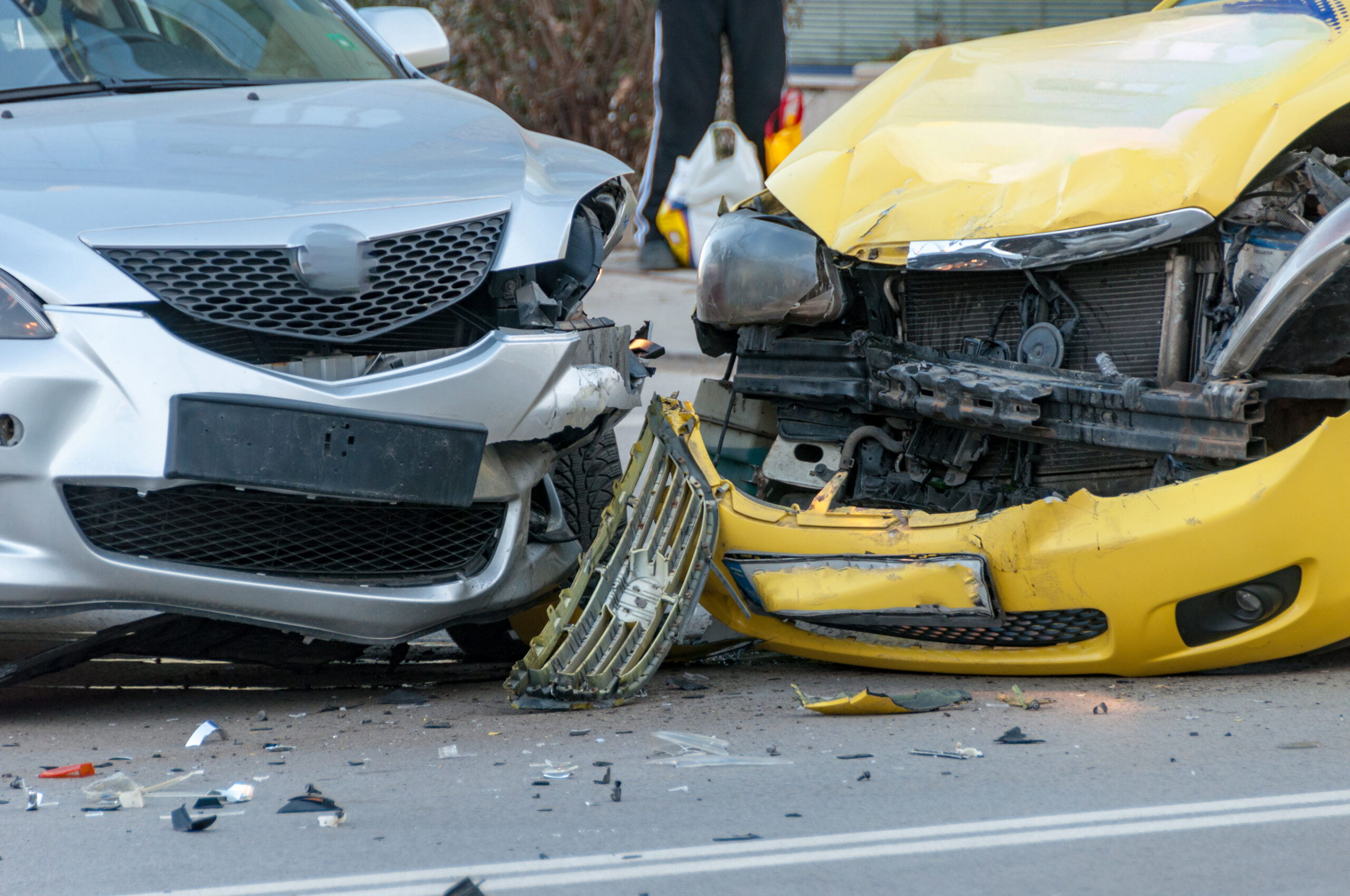The short answer to the question, “Can I sue Lyft after an injury accident?” —is yes. However, resolving rideshare accidents typically involves negotiations with liable insurance companies after filing claims for financial losses and other damages.
While most injury claims settle without a lawsuit, retain a lawyer experienced in handling Lyft injury accidents. Schedule a free consultation with a local Morgantown rideshare accident attorney after an injury in a Lyft accident. You may recover substantial financial compensation.
Who Can Sue Lyft After an Injury Accident?
Anyone suffering injuries and actual damages can sue Lyft after an injury accident.
Common injury and property damage victims who sue Lyft include:
- Passengers of the Lyft vehicle
- Occupants of other vehicles involved in the crash
- The Lyft driver
- Pedestrians
- Cyclists
- Motorcyclists
- Micro-mobility device riders, such as e-scooters and e-bikes
- Property owners with damages incurred by the accident
The loved ones of deceased victims involved in an accident can also sue Lyft for wrongful death. Like Lyft injury accidents, wrongful death cases usually resolve through insurance settlements, not lawsuits. However, even if your case does not end up in court, you’ll want to retain a reputable attorney to represent you.
How Does a Lyft Injury Accident Differ From Other Accidents?

Lyft injury accidents differ from other motor vehicle accidents in two primary ways: liability and insurance. Liability can be complex with Lyft accidents because it can involve multiple at-fault parties.
This complicates compensation because multiple insurance companies are liable and will do whatever they can to pass liability onto each other. An experienced lawyer can determine who must pay for what damages. Unrepresented clients are likely to have claims undervalued and thus —underpaid.
Liable Parties in Lyft Injury Accidents
A single or multiple parties may be liable for damages after a Lyft injury accident.
Liable parties typically involve:
- The Lyft driver
- The Lyft Company
- Negligent drivers on the road
- Third parties, including pedestrians, cyclists, property owners, and vehicle manufacturers
Municipalities may need to pay for damages after a Lyft injury accident if poor road conditions cause it. For example, a government agency may need to pay for accidents caused by cracks or potholes in the road, inadequate lighting or signage, faded road markings, and a lack of guardrails.
Insurance Liability in Lyft Injury Accidents
Lyft drivers are independent contractors, meaning they are not W-2 employees. This practice helps negate liability. Lyft requires its drivers to have car accident liability insurance coverage in case of a motor vehicle accident.
In addition, Lyft’s third-party liability insurance coverage covers drivers when they are online and available for a trip.
This coverage covers:
- $50,000 per person for bodily injury
- $100,000 per accident for bodily injury
- $25,000 per accident for property damage
Lyft insurance coverage for drivers en route to pick up passengers or during rides is at least $1 million to cover property damage and injuries to riders and third parties involved in a Lyft injury accident where the driver is at fault. However, they are not liable if the at-fault motorist gets into an accident while their Lyft app is off and not in use.
How an Attorney Can Help After a Lyft Injury Accident
Hire an attorney to represent you after a Lyft injury accident to protect you against insurers, investigate your claim, prove negligence, value your losses, and negotiate with liable parties.
Protect You Against Insurance Companies
One of the biggest benefits of hiring an attorney to help after a Lyft injury accident is the protection they offer against liable insurance companies. Insurance claim adjusters have a playbook, and the game involves getting you to do or say something they can use to deny liability.
Some of their usual tactics involve:
- Pretending to be a concerned friend to you after your traumatic accident so that you will trust them before trying to deny or undervalue your claim.
- Pressuring you to make a recorded statement regarding your injuries and how you feel immediately following and before the magnitude of the accident fully impacts you.
- Asking a line of intentional questioning to get you to say anything to harm your credibility about the severity of your injuries, maybe even coaxing you to downplay your injuries.
- Misinterpreting insurance policies to delay or deny liability.
- Asking for excessive documentation —to make it more challenging and overwhelming for the accident victim. So, when settling, you will accept the first lowball offer without fighting for fair compensation.
- Suggesting that you trust their in-house doctors to evaluate your injuries after an accident.
- Pressuring you to release your medical records so they may find anything they can claim as a pre-existing injury or condition causing the symptoms in your Lyft injury claim.
- Sending settlement offers that are only enough to cover your insurance copays.
- Hiring private investigators to spy on your daily activities after the accident, including stalking your social media accounts —looking for anything they can use to claim your injuries are exaggerated or non-existent.
One of the first things an insurance representative or claims adjuster may do is advise that you do not need a Lyft injury lawyer to handle your claim. However, they know attorneys are skilled negotiators who do this all day.
By discrediting the need for legal representation, insurance companies ensure unrepresented accident victims accept minimal compensation for their injuries and damages.
If you already provided a recorded statement to the insurance company, consult an experienced local attorney. They will advise you on what to do and what not to do next.
Investigate Your Lyft Injury Accident
A thorough investigation into your Lyft injury accident may take time and involve many components.
Your lawyer’s investigation may involve:
- Collecting and Preserving Evidence: Preserving evidence is imperative with Lyft injury accidents. Evidence, such as video surveillance and dashcam footage, can be recorded over and lost forever —quickly. Lawyers may also obtain police reports, photos of the scene and your injuries, medical records, and anything else that can prove negligence.
- Interviewing Eyewitnesses: In addition to contacting any witnesses the police took statements from for follow-up questions, they may locate and interview additional witnesses.
- Utilizing Their Network: Lawyers may use their network of expert witnesses, such as economists and medical experts, to assess and calculate damages and provide valuable testimony that helps prove negligence and liability.
- Reconstructing Accidents: Accident reconstruction specialists will use computer programs that employ physics and mathematical calculations to create detailed computer simulations and animations to reconstruct your Lyft injury accident.
After collecting and analyzing the data with the help of expert witnesses, your lawyer can identify all liable parties before proving negligence and valuing your claim.
Prove Negligence Beyond Reasonable Doubt
Your lawyer is responsible for proving the elements of negligence to establish liability in an accident. These elements are an owed duty of care, breach of that duty, cause in fact, proximate cause, and harm.
In a Lyft injury accident, that translates to:
- The defendant owed a legal duty to keep you safe, such as following traffic laws
- The defendant breached the duty
- The defendant’s breach caused harm to you
- The defendant’s actions are the proximate cause of harm to you
- The defendant’s actions are the cause-in-fact of harm to you
Your lawyer’s investigation into your accident will lay the foundation for proving negligence to liable insurers or a judge and jury if your case proceeds to trial. Ensure you give any evidence in your possession to your attorney to help them prove your case.
Value the Financial Losses and Damages
An experienced attorney will work with economy experts to determine the complete comprehensive value of your Lyft injury claim. This will include calculating economic losses and non-monetary damages, such as pain and suffering.
Negotiate With Liable Insurers
After valuing your claim, your rideshare lawyer will send a demand letter seeking compensation for that amount. Your attorney will negotiate with all liable insurance insurers involved in your claim to maximize your settlement. Negotiations can involve multiple back-and-forth exchanges before reaching an agreement.
How a Lawyer Can Help Sue Lyft After an Injury Accident

If your attorney and liable parties cannot agree to settlement terms, they can help sue Lyft after an injury accident.
First, they will file the lawsuit. Next, they will enter into the discovery phase. The discovery phase is a pre-trial process, where legal defense teams exchange information and prepare for trial.
Finally, your lawyer will represent your case before a judge and jury. This may include calling expert witnesses to the stand, cross-examining defense witnesses, and presenting the evidence in layman’s terms for the jury’s understanding.
Compensation You Can Recover After a Lyft Injury Accident
Lyft injury accidents may involve many types of damages for which you can recover compensation, including economic and non-economic damages.
You may recover compensation for medical, rehabilitation, disability, and vehicle-related expenses. Injury victims may also recover compensation for income losses, property damages, and pain and suffering.
Medical and Rehabilitation Expenses
You can recover economic damages for any medical and rehabilitation costs incurred by the Lyft injury accident through your insurance claim.
These losses commonly include:
- Ambulance transport from the accident scene
- Hospital admissions
- Surgeries
- Primary and follow-up medical care
- Imaging, labs, and diagnostics
- Specialists costs, such as physical therapy and chiropractic care
- Occupational therapy expenses
- Mental health service costs
For long-term injury symptoms and permanent disabilities, your attorney will work with economists to determine future medical and rehabilitation expenses.
Disability Costs
For Lyft injury accident victims sustaining permanent disabilities, home and transportation mobility modifications are additional economic damages you can sue for, such as:
- Vocational therapy expenses
- Wheelchair ramps and chair lifts
- Lowered countertops and sinks
- Raised toilet seats
- Step-less showers
- Handrails and levers
- Widened doorways
- Wheelchair accessible vehicles
Transportation mobility modifications are also recoverable expenses. These modifications may include seat belt adjustments, hand controls, and steering devices.
Income Losses
Any lost income incurred because of the accident is viable damages. Income losses include earnings, tips, commissions, bonuses, healthcare benefits, retirement, pension, tracted promotions, and diminished earning capacity.
Vehicle-Related Expenses
Your lawyer’s settlement demands include the costs of fixing or replacing your vehicle if it was totaled in a Lyft accident. You can recover transportation costs obtained due to a vehicle damaged in a Lyft accident, including for rental cars.
Property Damages
Any personal property damage costs incurred by a Lyft accident can be compensated for in your insurance claim. Typical property damages involve cell phones, portable electronic devices, bicycles, helmets, car seats, glasses, and clothing.
Pain and Suffering
Intangible losses that don’t hold monetary value but deserve compensation are often called pain and suffering.
These non-economic damages include:
- Physical and chronic pain conditions
- Physical impairments and disfigurements
- Emotional distress
- Short-term and long-term psychological trauma
- Sleep disturbances
- Decreased quality of life (inability to perform essential life tasks)
- Worsening of pre-existing injuries
- Shortened life expectancy
Unfortunately, sometimes accident victims develop substance use disorders from the pharmaceuticals used to manage their pain. Substance use disorder development is common with traumatic brain injuries (TBIs).
An attorney may seek compensation for newly developed substance use disorders if they can prove the disorder resulted from the Lyft accident.
Losses Resulting From Wrongful Death
Families suffering the loss of a loved one have a right to sue Lyft after an injury accident resulting in wrongful death.
In addition to many of the damages outlined already, grieving families may also seek compensation for:

Jeff Robinette, Morgantown Rideshare Accident Attorney
- Funeral or memorial service and burial or cremation costs
- Final medical expenses of the decedent
- Pain and suffering that the surviving family members endure
- Loss of consortium for surviving spouses
- Loss of household services
- Loss of parental guidance for surviving children
- Loss of earning capacity between the injury date and wrongful death
- Loss of enjoyment of life between the injury date and wrongful death
If your family are surviving victims of wrongful death, consult an attorney immediately. No one should incur the financial burden of medical debts and property damages while grieving the untimely passing of their loved one.
You will pay nothing to consult a reputable Morgantown personal injury attorney to evaluate your case and devise a legal plan to recover compensation.
Jeffery Robinette was admitted to practice law in 1991 and is licensed in all levels of state and federal trial courts in West Virginia. Mr. Robinette is also licensed in all state and federal appeals courts in West Virginia and the United States Supreme Court. As a National Board Certified Trial Attorney who has handled hundreds of motor vehicle, injury, and construction defect claims and a leading author on insurance claims settlement issues and difficulties in West Virginia, Jeff Robinette is uniquely qualified to represent your best interest.





